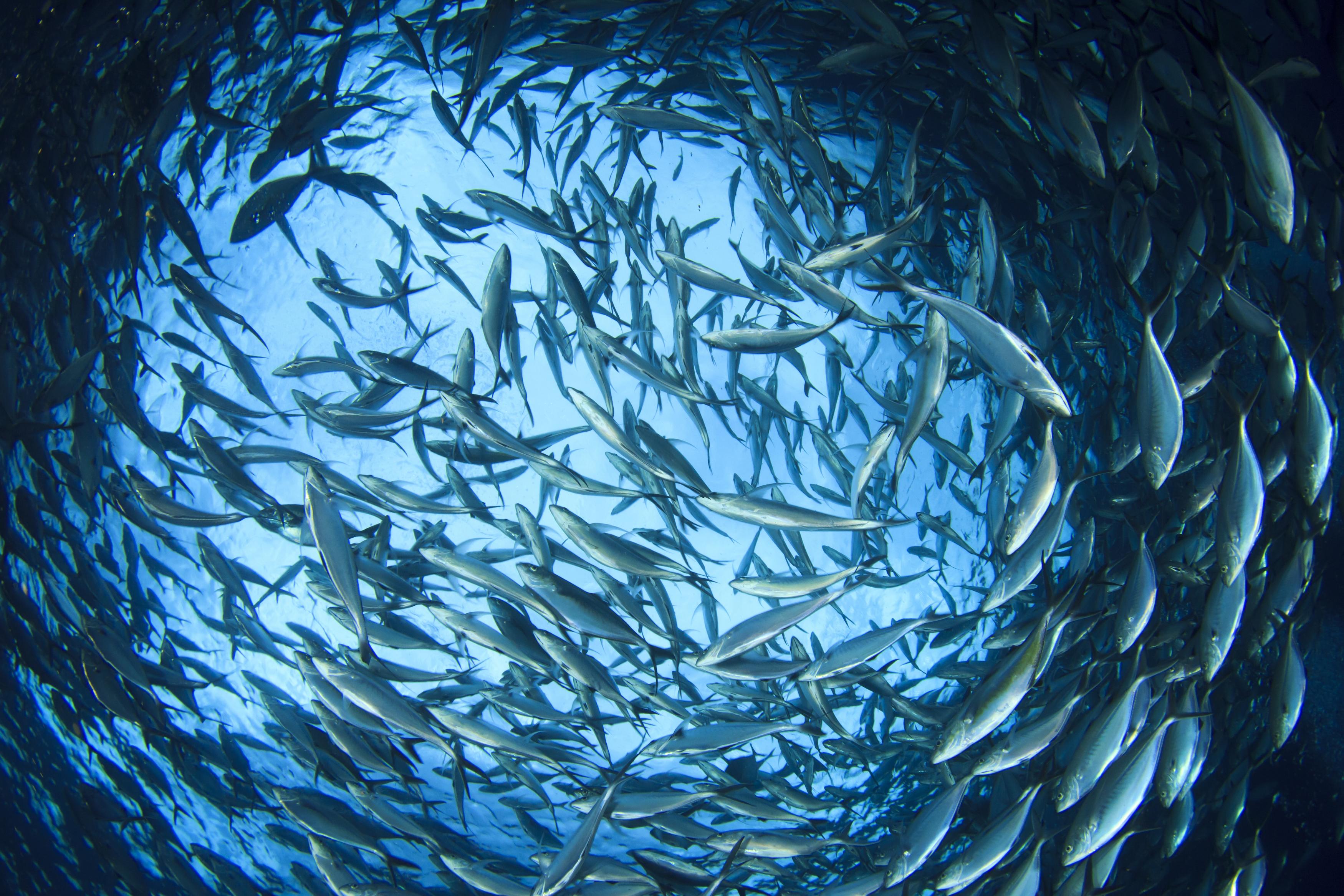Threats to nature, such as the unprecedented loss of species and the conversion of nearly half of the world’s forests, impact all of us. Everyone must take action to help provide a solution.
Get Involved
Project Gigaton’s™ nature pillar is a resource for suppliers to help set goals and report on nature efforts no matter where they are in their sustainability journey. It is designed to provide guidance with flexibility built in for suppliers that may be early in their nature-focused work, making progress, or leading change. Suppliers can use this online tool to learn, share goals, submit progress, and continue to improve.
| Early | Progressing | Leading | |
| Assess | • Sustainability materiality assessment | • Nature impact assessment on key areas (e.g., top materials or nature realms) | • Nature impact assessment across value chain and realms (biodiversity, freshwater, land, oceans, climate) |
| Commit and Measure | • Limited commitment • Measurement focused on select materials and/or other stand-alone actions/projects to reduce GHG emissions or nature loss from raw materials | • SMART goals and clear requirements for key areas • Tracking progress on key areas; reducing GHG emissions and addressing nature loss | • SMART goals to halt and reverse the loss of nature • Tracking progress across value chain nature outcomes |
| Act and Transform (aka programs) | • Certification used for sustainable sourcing, using “BASIC” programs | • Strategically advancing on goals • Using “BETTER" programs for sourcing • Beginning to get involved in and support industry-level efforts | • Systematically avoiding and reducing nature loss, restoring and regenerating nature • Collaborating to help transform actions and outcomes • Engaged in “BEST” programs including place-based initiatives |
| Disclose and Report | • Public sourcing policy | • Publicly reporting goals and progress | • Publicly reporting goals, progress, and lessons learned |
| Get Involved in Project Gigaton Nature Pillar | ➢ Develop goals and submit ➢ Begin tracking progress and report | ➢ Submit at least one goal ➢ Report progress on 1+ questions or commodities | ➢ Update goals as program progresses ➢ Report progress on 1+ questions or commodities |
Suppliers can use this maturity chart to determine next steps through Project Gigaton™. They may include assessing the company’s supply chain and business to determine priorities for nature, establishing goals and making measurable progress on topics such as deforestation, biodiversity, freshwater, oceans, and land use.
Suppliers are encouraged to share their efforts through Project Gigaton™ in the following ways:
A key approach in nature focused efforts is to establish a goal, usually after assessing the nature risks for the business (sample tools: materiality assessment, supply chain assessment) and identifying priorities for action. The Science Based Targets Network is another resource that provides guidance for assessing and prioritizing nature for goal setting.
Walmart recommends setting ambitious, SMART goals that are Specific, Measurable, Achievable, Relevant & Time limited. Suppliers may consider helping reduce emissions at the farm level or join Walmart in protecting and managing standing forests, restoring critical forests, or supporting landscape and jurisdictional approaches in key production regions.
We encourage suppliers to share their goals through Project Gigaton™ regardless of where these might be in the journey toward SMART goals. Some examples of goals include:
Certification goals:
- We will source 100% certified pulp and paper by 2025
- We will source 100% certified tuna by 2025
Sustainable management goals:
- We will source palm oil as deforestation-free and conversion-free by 2025
- We will have 150,000 new acres adopting new regenerative agriculture practices by 2025
Restoration and conservation goals:
- We will commit at least 5% of land to pollinator habitat by 2023 (that we own, operate, or invest in)
- We will help to protect, or restore at least 250,000 acres of land by 2025
- We will restore forests by planting 250,000 trees with American Forests by 2025
Place-based goals:
- We will invest in 2 place-based projects by 2023
- We will source from 3 place-based projects by 2025
Note that suppliers do not need to have a goal or submit a goal to report progress through Project Gigaton™.
This video provides more information on how to set formal, specific goals.
Many companies are actively working to protect, restore, and sustainably manage nature. However, some suppliers do not realize how much of their work applies to and can be submitted through the nature pillar. Submitting your eligible efforts through Project Gigaton™ gives visibility to your efforts by Walmart and can unlock a variety of additional benefits for suppliers that reach Giga Guru status.
We encourage suppliers to review the step-by-step guide to reporting progress through the nature pillar. Log in at the Walmart Sustainability Hub to use the dashboard and online calculators.
Here is an example of how one company submitted their efforts through Project Gigaton™.
Note that for seafood commodities, please report through Sustainable Fisheries Partnership (SFP) Metrics Table.
Walmart developed a table and help suppliers engage in—and continuously improve on—their efforts. This framework is informed by a robust consultation process with several leading environmental non-profit organizations to identify and assess activities that support positive nature outcomes.
- Basic – Source commodities using recognized certification programs and improvement projects, or using equivalent practices linked to positive outcomes for nature.
- Better – Source commodities using higher quality certification programs with more tracked nature outcomes, more robust traceability and/or social and economic indicators, or where certifications are unavailable, are produced using equivalent practices.
- Best – Source commodities through and/or support jurisdictional or place-based initiatives that more sustainably manage, restore and/or protect nature aligned to landscape and seascape needs, and linked to positive environmental, social and economic impacts.
This framework is intended to help suppliers continuously improve from early efforts to more advanced efforts that are transparent, traceable, and impactful. The aim is to implement best practices that deliver environmental, economic, and social outcomes across entire landscapes.
The guide has a table that summarizes the certifications and practices recognized under Walmart’s FY22 Basic, Better, Best framework.
| Commodities | Basic | Better | Best | |
| Forests | Coffee / Cocoa | Fair Trade USA | Rainforest Alliance - Coffee, Rainforest Alliance - Cocoa | Credible Place-based, Jurisdictional Approach + Investments in Restoration, Conservation |
| Palm Oil | Roundtable on Sustainable Palm Oil (RSPO) – mass balanced, Rainforest Alliance, International Sustainability & Carbon Certification (ISCC), Indonesian Sustainable Palm Oil (ISPO) | RSPO - Segregated, RSPO - Identity Preserved | ||
| Pulp / Paper | Programme for the Endorsement of Forest Certification (PEFC), Sustainable Forestry Initiative (SFI) | Forest Stewardship Council (FSC) | ||
Agriculture | Cotton | Organic (USDA Organic or Equivalent, Global Organic Textile Standard, Organic Content Standard), Fair Trade USA Cotton, Cotton USA, Better Cotton Initiative (BCI)1 | ||
| Soy | Cefetra Responsible Soy*, Proterra Standard* | Roundtable on Responsible Soy (RTRS) | ||
| Beef, Corn/Maize, Wheat, & Rice | 1+ nature positive practices | 2+ nature positive practices | ||
Produce | Integrated Pest Management (IPM) certifications: Bee Better Certified, LEAF Marque, Equitable Food Initiative | Integrated Pest Management (IPM) Certifications: Rainforest Alliance, Sustainability Standard, U.S. Department of Agriculture Organic or Equivalent, OR basic IPM certification with 1+ nature positive practice | ||
Oceans | Wild-Caught Tuna/Shrimp/Salmon | GSSI-recognized certifications, Participation in Fishery Improvement Project (FIP) with definitive, ambitious goals, measurable metrics, and timebound milestones | Marine Stewardship Council (MSC) | |
Farmed Shrimp/Salmon | Global G.A.P., Participation in aquaculture improvement project (AIP) with definitive, ambition goals, measurable metrics, and timebound milestones | Aquaculture Stewardship Council (ASC), Best Aquaculture Practices Certification (BAP) |
Learn More

Why Nature Matters
As the global population increases, forests, agricultural landscapes, and oceans that sustain our food and other resource systems are under greater stress to meet the growing demand.

What Walmart is Doing
In response to the growing climate crisis and to help combat the cascading loss of nature, Walmart and the Walmart Foundation are committed to helping protect, restore, or more sustainably manage at least 50 million acres of land and one million square miles of ocean by 2030.
Key Resources
- Project Gigaton™ Nature Pillar Guidance: for submitting goals and reporting progress
- Project Gigaton™ Calculators
- Video: How to Set a Nature Goal
- Video: Introduction to the Nature Pillar and Reporting Progress
- Video: Meat, Eggs, and Dairy Project Gigaton™ Calculator Closer Look
- Video: Row Crops Project Gigaton™ Calculator Closer Look
- Video: An Overview of Fertilizer Optimization at Walmart
- Video: See how EDF, Smithfield, and Walmart are working together with farmers to optimize fertilizer use
- Science Based Targets Network
- To learn more about how Walmart measures progress, please reference the Project Gigaton™ Accounting Methodology
1 Walmart is a member of The Better Cotton Initiative (BCI). Better Cotton is sourced via a system of Mass Balance and is not physically traceable to end products (see bettercotton.org/massbalance for details). BCI is the leading certification related to nature positive outcomes in the Basic category.



